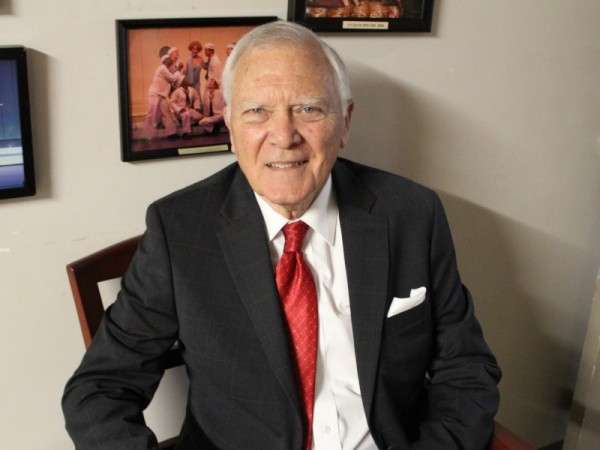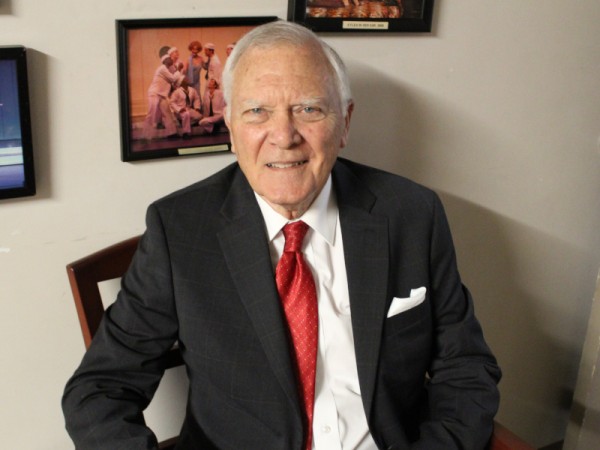ATLANTA (AP) The Georgia Legislature convenes Thursday for the final day of the 2015 session, with all eyes on a religious freedom bill still stalled in a House committee.
By law, Georgia's General Assembly meets for 40 working days each year. Any bills not approved by each chamber by midnight are dead for the year.
Lawmakers are expected to send dozens of bills to Gov. Nathan Deal before adjourning ``sine die.''
Here's a look at some of the proposals before House and Senate members:
RELIGIOUS FREEDOM
A House committee has taken no action since last week on state Sen. Josh McKoon's bill forbidding government from infringing on a person's religious beliefs unless the government can prove a compelling interest. Other ``religious freedom'' measures with varying language have surfaced in a total of 13 states, including Indiana where businesses have warned the new law could act as a shield for discrimination.
The Georgia measure stalled after a Republican lawmaker added anti-discrimination language that supporters said would ``gut'' the bill's protection for people motivated by religious belief. Opponents have said it is necessary to protect gays and transgender people because Georgia lacks a statewide law covering them.
The panel hasn't scheduled any meetings before the end of session. Committees can vote to take up tabled measures at any time. House Speaker David Ralston declined to discuss the measure's fate Tuesday night. He has said that the U.S. Constitution already protects religious freedom and asked why an additional law is necessary.
The Senate already has passed the bill. McKoon, a Republican from Columbus, didn't immediately respond to a message on Wednesday.
AUTISM INSURANCE
The House is slated to reconsider legislation that would require insurance companies to offer $30,000 in coverage for children with autism.
The bill, more than two years in the works, passed the Senate earlier in the week 54-0.
It's the product of a deal worked out by state Sen. Charlie Bethel, R-Dalton, and Rep. Richard Smith, R-Columbus. It incorporates language of a bill by Bethel with Smith's HB 429, which deals with end-of-life coverage for terminal patients.
Proponents of autism insurance, such as Judith Ursitti of the Autism Speaks advocacy group, say they finally are hopeful.
After the House approves the measure, ``Gov. Deal will then have 40 days to sign and he has told us that he will,'' Ursitti said Wednesday. ``We are thrilled to take this big step forward after fighting the fight since 2009. More work to do, but this is a great start.''
RIDE-HAILING REGULATION
Rep. Alan Powell, R-Hartwell and chairman of the powerful House Public Safety and Homeland Security Committee, said Wednesday he feels ride-hailing legislation has cleared its last roadblock now that the state Senate has passed his bill, HB 225, and another by Rep. Rich Golick, R-Smyrna, HB 190, requiring Uber and similar companies to carry $1 million of insurance for its drivers, whom it calls partners, not employees.
``I wanted background checks, and we got that,'' he said. ``They can do fingerprints or hire private detectives and turn in that information to the state. It's a public safety issue.''
Powell, part of the General Assembly leadership, said he expects Gov. Nathan Deal to sign the bills into law, meaning Uber, Lyft and other ride-hailing companies can continue to operate. Uber, defined as a transportation network company, said it has thousands of Georgia drivers, most in Atlanta and other university towns.
Golick's bill spells out insurance requirements for Uber and its drivers.
Uber said in a statement that though the bill ``differs slightly'' from a recent national agreement among key auto insurance firms, the changes in HB 190, which it once adamantly opposed, are now acceptable.
SCHOOL SAVINGS OR VOUCHER?
Legislation that would let parents use state money toward private school tuition or other education expenses could be revived.
A House bill from Republican Rep. Mark Hamilton of Cumming didn't receive a floor vote before the session's 30th day. A Senate rule requires that legislation pass at least one chamber by that time.
On Wednesday, Hamilton added his bill's language to an unrelated Senate bill. The measure still would need to be scheduled for a floor vote in the House and return to the Senate for approval.
Opponents have said the proposal is a school voucher program by another name and diverts money from public schools.
Hamilton's original bill caps the number of students for two years.
Tuesday
November 5th, 2024
7:11PM

















